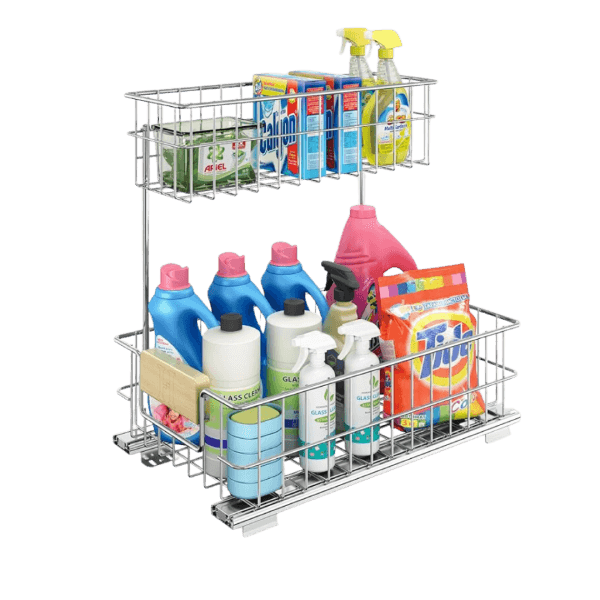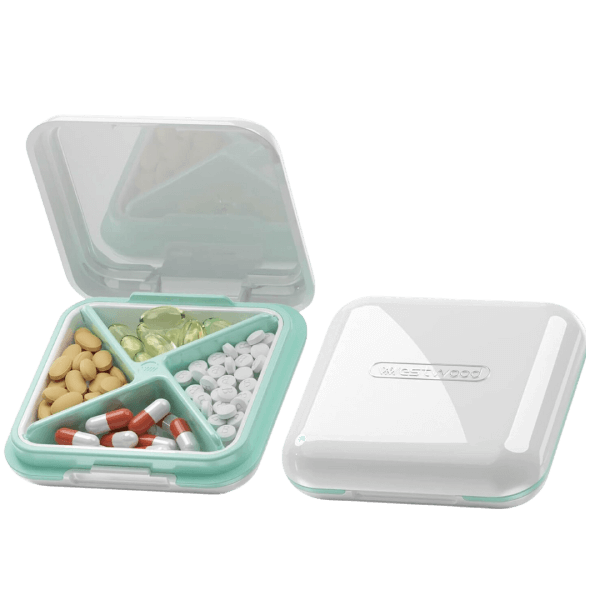Colorectal or colon cancer affects the large intestine, also known as colon or rectal cancer. It’s one of the most common cancers in men and women, and it can be fatal if not detected early enough. This blog post will cover all you need about colorectal or colon cancer, from signs and symptoms to diagnosis, treatment, risk factors, prevention strategies, and screening recommendations.
Signs and Symptoms of Colorectal or Colon Cancer
The signs and symptoms of colon cancer can vary depending on the stage diagnosed.
Common symptoms include feeling tired all the time; changes in bowel habits; blood in your
stool or dark stools; abdominal pain; bloating or gas; unexpected weight loss; changes in
appetite; and anemia. If you have had these symptoms for more than two weeks, speak with
your doctor immediately for a proper diagnosis.
Diagnosis and Treatment of Colorectal Cancer
Suppose you experience any of the symptoms above for more than two weeks. In that case,
your doctor may order tests such as a colonoscopy, sigmoidoscopy, barium enema X-ray, or a
CT scan to diagnose colorectal or colon cancer. Treatment options vary depending on whether the cancer has spread beyond the colon and rectum but may include surgery, chemotherapy, and radiation therapy.
Risk Factors for Colorectal or Colon Cancer
The following are some risk factors associated with colorectal or Colon cancer. Age (over 50), family history of colorectal cancer/polyps/inflammatory bowel disease; personal history of polyps or inflammatory bowel disease; smoking; obesity; alcohol consumption; diets high in red meat or
processed meats; certain hereditary conditions such as Lynch Syndrome/FAP (familial
adenomatous polyposis); certain medications (such as anti-inflammatory drugs); long-term use of hormones during menopause (HRT); and exposure to certain chemicals such as asbestos or arsenic. While these factors significantly increase your risk for colorectal cancer, it’s still important to remember that even without these factors, you are still at risk for developing this form of cancer.
Prevention Strategies for Colorectal Cancer
The best way to prevent colorectal or colon cancer is through regular screenings starting at age 50 for average-risk patients. Regular screenings help detect and facilitate the removal of pre-cancerous polyps. It’s also essential to maintain a healthy lifestyle by avoiding processed meats, smoking, and alcohol consumption as much as possible. Maintaining a healthy diet full of fruits, vegetables, whole grains, and lean proteins, along with regular physical activity 30 minutes per day, five days per week, can be preventive.
Screening Recommendations for Colon Cancer According to guidelines set forth by the American College Of Gastroenterology (ACG), patients should start colon cancer screening at age 50 unless they have a family history; then, screening should start earlier at age 40 – 45 years old. Screenings usually involve colonoscopies every ten years until the patient turns 75. Then, a colonoscopy is recommended every five years as the risk increases with advancing age. Stool sample tests are recommended between normal colonoscopies. Your doctor will advise on the best screening options for you.
As one can see from this blog post, there is much more to understanding all aspects of colorectal cancer. Early detection is critical when dealing with this cancer, so get regular screenings according to ACG guidelines. If any concerning signs & symptoms occur, such as fatigue, abdominal pain, unexpected weight loss, or change in stool color, get in touch with your healthcare provider ASAP.
Everything You Need to Know About Colorectal Cancer FAQs
How to diagnose colorectal or colon cancer?
Diagnosing colon cancer starts with knowing the signs and symptoms of the condition and your risk factors. The best way to detect colon cancer in its early stages is a combination of regular medical check-ups, screenings, tests, and lifestyle changes.
Medical Check-Ups
People should check in with their healthcare provider every year for a physical exam that includes checking for any rectal bleeding or other worrying signs or symptoms. People who are at increased risk should visit their doctor more frequently.
Screening Tests
Screenings can detect pre-cancerous polyps so they can be removed before they become cancer. Screenings tests include a fecal occult blood test (FOBT), which looks for hidden blood in stool samples; sigmoidoscopy, which uses a flexible tube to examine the lower part of the large intestine; and colonoscopy, which examines both upper and lower parts of the large intestine by inserting a long flexible tube into them.
Diagnostic Tests
Tests used to diagnose colon cancer include X-ray imaging such as computerized tomography (CT) scan, magnetic resonance imaging (MRI) scan, and positron emission tomography (PET) scan; endoscopic ultrasound, which allows doctors to view deeper layers of tissue using sound waves; biopsy where small tissue samples are taken from suspicious areas for further testing by pathologists; carcinoembryonic antigen (CEA) test that looks out for higher levels of CEA release in people with certain types of cancers including colorectal cancers; stool DNA test that checks genetic material found within stools to examine mutations linked to colorectal cancer cells, etc. These tests help identify if someone has developed colon cancer or not, besides helping determine how far it has advanced if one already has it.
What causes colon cancer in men?
Colon cancer is one of the most common causes of death in men, and it’s important to understand what may increase a man’s risk of developing this disease. The exact cause of colon cancer remains unknown; however, numerous factors place men at a higher risk.
The primary risk factor associated with colon cancer among all genders is age – as one grows older, the chances of developing this disease increase significantly. Additionally, it’s been found that men over 60 have an increased chance of developing colon cancer when compared to women the same age. This could be due to lifestyle differences or different responses from aging cells in male versus female bodies.
Other than age, some additional risk factors for colon cancer, specifically for men, include: having a family history of colon cancer; consuming processed foods/alcohol excessively; being overweight/obese; smoking cigarettes; leading an inactive lifestyle with little physical activity; experiencing chronic inflammation in your gastrointestinal tract (Crohn’s Disease or ulcerative colitis); and polyps (an overgrowth often found on the lining of the intestines). Exposure to certain toxins or chemicals may also contribute to an increased likelihood of colorectal cancers.
All individuals must be aware of their colon cancer risks and take appropriate measures to reduce them as much as possible through healthy habits such as eating a balanced diet, exercising regularly, and avoiding carcinogens such as tobacco smoke or other environmental pollutants. By understanding the potential risks associated with tumors within your digestive system, you can better protect yourself against colon cancer.
What causes colon cancer in women?
Colorectal cancer, which includes both colon and rectal cancer, is the third most common type of cancer in women. Although its exact cause is unknown, several risk factors have been identified that increase a woman’s chances of developing it.
Age is the primary factor that increases colon cancer risk for women. The American Cancer Society estimates that about 90 percent of cases occur in people over 50. Women with a family history of colorectal or breast cancer are more likely to have an increased colon cancer risk, especially if their relatives developed the disease at an early age. It’s also important to note that certain lifestyle factors can increase one’s colon cancer risks: high red meat consumption and excessive alcohol intake are mainly linked to increased risks for this type of malignancy. Additionally, smoking increases your chances for colorectal cancer, too — something all women should consider when deciding whether to pick up the habit!
Finally, certain other medical conditions can affect how likely you are to get colorectal cancers: inflammatory bowel diseases such as Crohn’s disease and ulcerative colitis can raise your chances substantially, while having diabetes or obesity has also been linked with an increased incidence rate compared to those without either condition. Regular screening tests (such as colonoscopies and fecal occult blood tests) are recommended starting around 45 years old — making sure you recognize any signs earlier could help lead to better treatment outcomes!
You will typically see global entry kiosks throughout select airports which help to streamline the overall process for people with global entry benefits. Let’s dive deeper into what Global Entry is, how it works, and why you should consider signing up for the program.

How to prevent colon cancer?
Preventing colon cancer starts with knowing the risk factors and making healthy lifestyle choices. Understanding your risk, reducing or eliminating any behaviors or conditions that increase it, and getting recommended screenings are all crucial ways to protect yourself from this potentially deadly disease.
Risk Factors
Several factors may increase your chances of developing colon cancer, including Age (people over 50 have a higher risk), Race/ethnicity (African Americans have the highest rate of colorectal cancer in the U.S.), Family history (having a parent or sibling, or child diagnosed with colorectal cancer increases your risks), Smoking tobacco products (cigarettes can cause inflammation in the digestive tract which damages cells), Diet low in fruits and vegetables and high in red meat/processed meat, Heavy alcohol use and Physical Inactivity.
Reduce Risk Through Healthy Lifestyle Choices
You may not be able to control some risk factors for colon cancer, such as age or family history; however, you can adopt several healthy lifestyle practices to reduce your chances of developing this type of cancer.
Healthy Lifestyle Recommendations
Quit smoking
Tobacco smoke contains several carcinogens that damage cell DNA leading to cancers. Quitting smoking will reduce your risks significantly.
A diet rich in fruits and vegetables
Eating plenty of fresh produce provides essential vitamins & minerals that both nourish organs and fight off disease-causing agents like free radicals found inside our bodies and the environment.
Furthermore, dark leafy greens like broccoli contain sulforaphane which studies suggest aids regenerative properties within the intestines, which help keep them healthier. Lastly, fiber found inside produce helps promote digestion by keeping intestinal walls cleaner and stronger.
Exercise Regularly
Exercise helps reduce inflammation associated with unhealthy lifestyles while strengthening core muscles. Regular exercise supports both the digestive and the immune systems. It’s recommended to exercise for 30 minutes five days per week. Find activities you enjoy, like biking, swimming, walking, etc., that make fitness fun rather than a chore each day!
Limit Alcohol Intake
Drinking excessively can cause harmful chemicals to damage the intestinal lining and dehydrate the body, leading to vitamin deficiencies and further weakening bodily functions needed to fight off foreign viruses, bacteria, etc. Try limiting your intake at night to 1 glass of alcohol, and if possible, avoid alcohol altogether. Maintain proper hydration by drinking water, tea, and juice whenever possible. Other non-alcohol alternatives to consider are mocktails and non-alcoholic beers.
Regular Screening Tests
The ACS recommends that people at average risk(those not high risk) of colorectal cancer start regular screening at age 45. Those in good health and with a life expectancy of more than ten years should continue routine colorectal cancer screening until 75. Those over the age of 85 should no longer get colorectal cancer screening.
Those with a first-degree relative with colorectal cancer or an adenomatous polyp diagnosed at age 60 or younger, or two first-degree relatives diagnosed at any age should start screening at age 40, or 10 years younger than the youngest case in their family, whichever comes first.
What are the signs and symptoms of early stage 1 colon cancer?
Colon cancer is one of the most common types of cancer, with more than 1 million cases reported yearly worldwide. The early stages of colon cancer can be asymptomatic, meaning there are no signs or symptoms. It is estimated that more than 60% of cases diagnosed at Stage I (early stage) were so before any signs or symptoms appeared.
The most common signs and symptoms associated with early-stage colon cancer include changes in bowel habits such as constipation, diarrhea, or a combination; blood in the stool; abdominal discomforts such as gas, nausea, or cramps; and unexplained weight loss. In addition to these primary indicators, people may also experience fatigue, bloating/abdominal fullness after meals, anemia due to iron deficiency caused by chronic blood loss in the stool without visible evidence of bleeding, and rectal pain/pressure felt during bowel movements.
It is important to note that while some individuals with early-stage colon cancer display few if any symptoms at all until it reaches an advanced stage, having regular screening tests such as a fecal occult blood test (FOBT), flexible sigmoidoscopy (FSIG) and/or colonoscopy can help detect this type of cancer before any visible signs so treatment can begin promptly to prevent its progression.

How to screen for colon cancer?
Screening for colon cancer is essential to preventing the disease and catching it early if it does occur. Colon cancer screening tests are tools to find abnormal growths in your large intestine before noticeable symptoms appear. These screenings can lower your risk of developing colorectal and dying from the disease. The American Cancer Society (ACS) recommends that people aged 45 or older get screened for colon cancer by one of these three methods:
A fecal occult blood test every year
This test looks for hidden blood in your stool, which is often an early warning sign of cancer.
A sigmoidoscopy every five years
This exam uses a thin, lighted tube to look at the inside lining of the rectum and a lower portion of the descending large intestine, called the sigmoid colon. This can be done alone or with fecal occult blood testing every three years, depending on the results.
A colonoscopy every ten years
During this exam, a doctor inserts a thin tube with a camera attached into your large intestine to look for polyps or other abnormalities; this procedure allows tissue samples to be taken at once if necessary. If polyps are found, they can usually be removed during the same visit.
Stool DNA Test
Although less commonly used than traditional fecal occult blood tests (FOBT), stool DNA testing has recently become available. Specific molecular markers indicate potential tumors in stool samples before any visible reactions occur on physical exams. The standard FOBT testing procedures do not identify potentially malignant cellular changes until they have already developed into full-blown tumors. Stool DNA Testing identifies potentially malignant cells much earlier while allowing physicians enough time to diagnose, treat, and remove them before they spread.
Advanced screening for high-risk individuals
Individuals at higher risk for colorectal cancer should talk with their doctor about additional screening options. People at high risk may need more frequent screenings than those recommended by ACS guidelines, ages 45+. Some may even require genetic testing where applicable if colorectal cancer is significant in their family history.
How to treat colon cancer?
When treating colon cancer, the approach will depend on a few factors, such as the cancer stage at diagnosis and the patient’s overall health. Essentially, there are four primary treatments for colon cancer: surgery, chemotherapy, radiation therapy, and targeted therapy.
Surgery
Surgery is typically a first-line treatment for most patients with non-metastatic colorectal cancers. Depending on the size and location of the tumor(s), surgical approaches can range from simple removal of polyps to colectomy (removal of an entire section or all parts of the colon). In some cases where tumors are small enough or located in an accessible area, minimally invasive techniques – including laparoscopic surgery or robotic operations – may be employed instead.
Chemotherapy
Chemotherapy is commonly used after surgery to reduce any remaining microscopic cancer cells that may still be present. Generally, strong anti-cancer drugs are administered intravenously (or sometimes orally) over several weeks/cycles with breaks in between so that body has adequate time to recuperate from possible side effects of medication.
Radiation
Radiation therapy is another avenue that may complement either before or after surgery, depending on the medical circumstances. This option involves high-powered x-rays delivered directly into affected areas to shrink tumors before surgery or kill residual cancer cells after surgery.
Genetic biomarkers and targeted therapy
Finally, targeted therapies leverage genetic biomarkers identified during initial testing to determine which drugs can successfully treat colorectal cancer and minimize damage to healthy tissues.

Can HPV cause colorectal or rectal cancer?
Yes, the Human Papillomavirus (HPV) can cause rectal cancer. It is a virus that spreads through sexual contact and is one of the most common sexually transmitted infections (STIs). According to recent research, HPV has been linked to several different cancers, including anal, cervical, and oropharyngeal cancers.
HPV infection can lead to several health complications, including genital warts, abnormal cell changes in the cervix, which can lead to cervical cancer if left untreated, and laryngeal papillomas, non-cancerous growths on vocal cords. Newer studies also suggest that specific subtypes of HPV may be associated with an increased risk for rectal cancer.
The researchers found that individuals with persistent high‐risk HPV 16/18 were more likely than those without this type of infection to develop colorectal adenocarcinoma—a form of colorectal cancer commonly known as rectal cancer. The risk was even higher among men than women; men with persistent high‐risk HPV 16/18 were eight times more likely than those without it to develop rectal or anal cancers, whereas, for women, it was four times higher risk compared with people who did not have a persistent infection.
Vaccines such as Gardasil 9 are available for both genders aged 9-26. These vaccines protect against high‐risk genotypes, such as types 16 and 18, linked most closely with anogenital cancers in both men and women.














